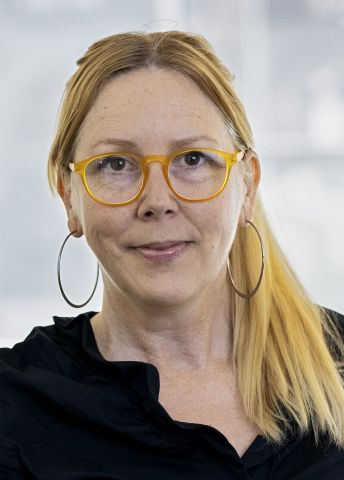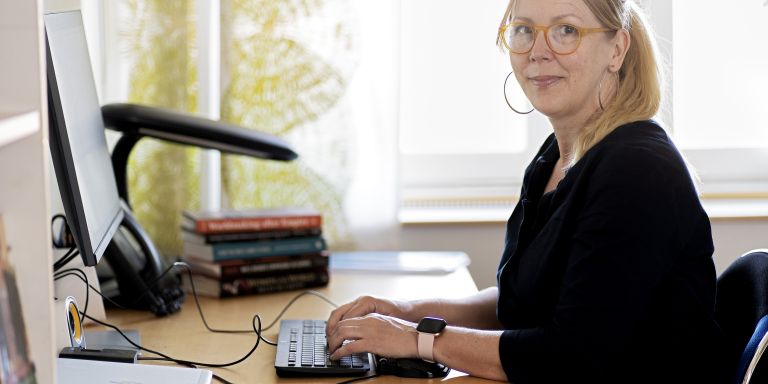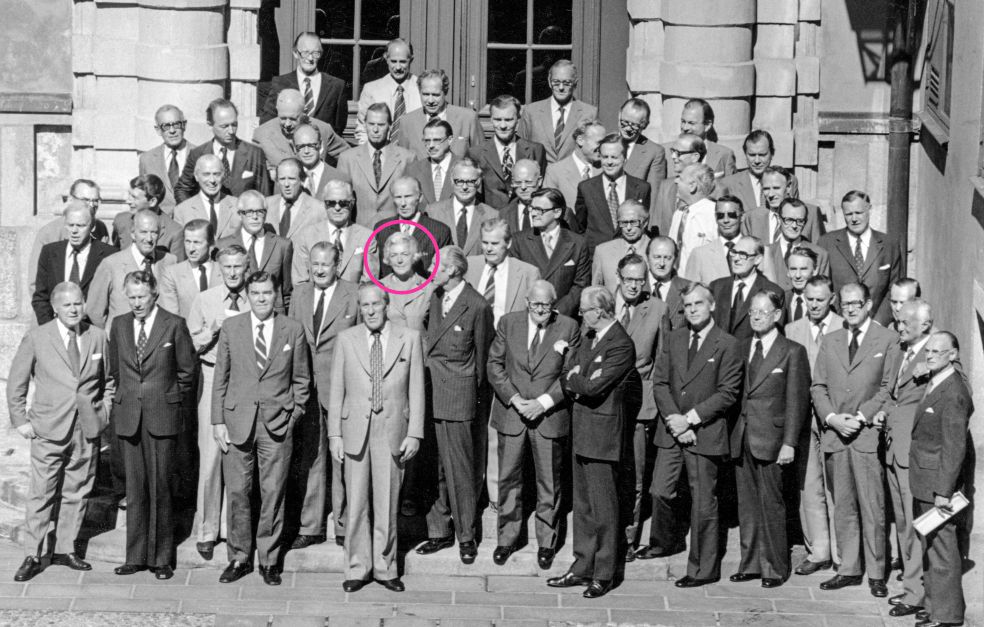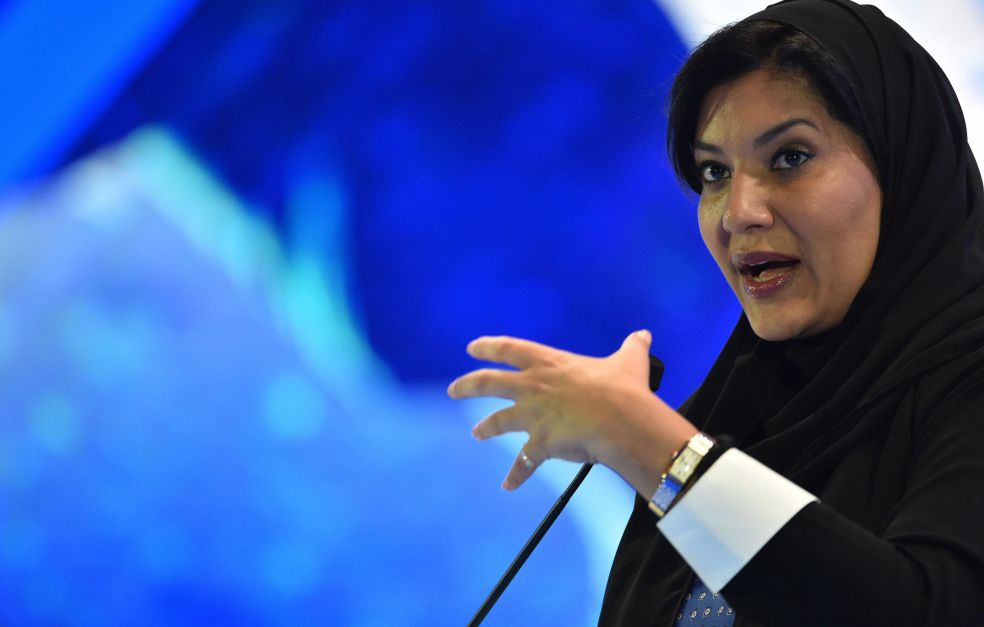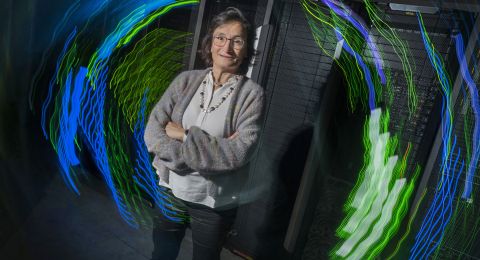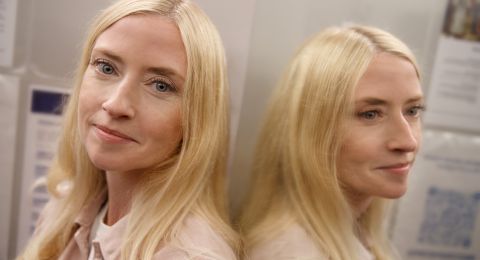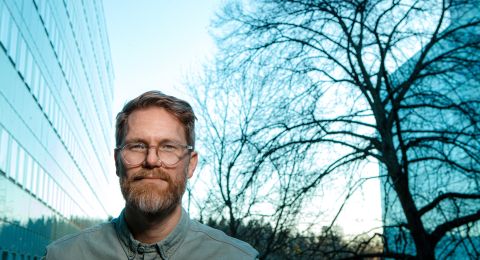When diplomacy became a profession in the 19th century, rules were introduced prohibiting women from working as diplomats. In most countries, it was not until the Second World War that women formally acquired the right to become diplomats. But there was a caveat, as Towns, who is a political scientist at the University of Gothenburg, explains:
“A rule was introduced that women who wanted to be diplomats could not get married.”
The old rules have been gradually phased out. Since the late twentieth century large numbers of women have applied to join the diplomatic service – a trend that sparked Town’s curiosity. She quickly found out that there was a lack of research in this area.
“There’s an awful lot of research on gender and the armed forces, for example, yet the gender dimension in the diplomatic profession has been almost completely overlooked.”
Sweden's ambassadors gathered in a picture in 1975, about sixty men and one woman, Agda Rössel, who is in the second row. Photo Reportagebild / TT
With the help of the Wallenberg Academy Fellow grant, Towns has been able to establish gender and diplomacy as a new field of research. She has set up a research hub called “GenDip”, consisting of a research team in Gothenburg, an international network of researchers, a website and a series of conferences.
Survey of ambassadors
The project began with a survey of bilateral ambassadors across the world who are women or men.
“Such a basic fact was not actually known, but we have now gathered data on some 80,000 ambassadorial postings from the 1960s to the present day.”
Her studies show that the proportion of female ambassadors has risen over time, and continues to do so. By 2014 about fifteen percent of the world’s 15,000 or so ambassadors were women. A few years on that figure is approaching twenty percent.
“Our data also show wide variations between countries. Many Caribbean and Latin American countries have a high proportion of female ambassadors, for example, whereas a country like Russia only has one or two.”
The statistics also reveal different patterns for where men and women are posted.
“We can see that men still predominate when it comes to the prestigious capital cities, such as Washington DC and Moscow. Men also outnumber women in postings with a marked security policy dimension.”
Reema Bint Bandar was named Saudi Arabia's first female ambassador ever in 2019. Photo TT/AFP
Intriguing interviews
But Towns considers the most exhilarating aspect of the research to be the field work. So far, she has conducted in-depth interviews with over 75 ambassadors, women as well as men. The aim is to gain an idea of the impact of gender on the ambassadorial role and diplomatic networks.
“I started out thinking that I would hear accounts of exclusive male networks and discrimination of women, given the overwhelming male dominance of the diplomatic profession for many years. But on the contrary, most of the people I have spoken to have claimed there are no particular gender patterns within diplomacy.”
Towns soon noticed that ambassadors prefer to talk about challenges in general terms. But when she started to ask more specific questions about networks, clothes, family life and working hours, the answers immediately became more interesting.
She has discovered how a multitude of gender-oriented small tasks, such as changes of clothes and entertainment can combine to create greater time pressure for women than for men. This can add to stress and cause more women than men to abandon a diplomatic career.
“It’s a burden they often don’t put into words, probably because they don’t want to undermine their own profession.”
In some national capitals informal women-only ambassadorial networks have emerged. Ann Towns has come to realize that the networks serve as a release valve for women’s experiences. Now the idea is to delve deeper into these networks.
“The whole Wallenberg Academy Fellow scheme encourages researchers to raise the bar and think in terms of excellence. For my own part, the grant has enabled me to build a team, pose more questions, and raise more difficult issues.”
Equal opportunities a sensitive diplomatic issue
In 2018 Towns won a prize, the Bertha Lutz Award, for her research on gender and diplomacy. Her findings are already being used in diplomat training courses.
Her next project is intended to examine growing polarization on questions of gender equality in foreign policy. Since the 1970s great strides have been made to increase equality of the sexes, but resistance has gathered strength in recent years.
“On the one hand we have countries like Sweden, which actually pursue feminist foreign policy. On the other hand, there is a growing ‘anti-gender movement’ in countries such as Poland and Hungary.”
One issue concerns how diplomats approach gender equality in an era of political divisiveness.
“It’s an interesting dilemma, since diplomats are supposed to promote the policies of their home country, but also to bridge differences of opinion. One thing we’d like to find out is whether they attempt to approach those who do not share their views or whether they prefer to mix with like-minded people, and what the effects of this are.”
Another aspect is to study how the ministry for foreign affairs and the diplomat training program adapt their organization, recruitment and training to current foreign policy.
“It’s fascinating that many countries nowadays pursue an explicit gender agenda in their foreign policy, and actively recruit women to diplomatic posts. A hundred years ago this would have been inconceivable – the law prevented them from working as diplomats,” Towns points out.
Text Nils Johan Tjärnlund
Translation Maxwell Arding
Photo Johan Wingborg
